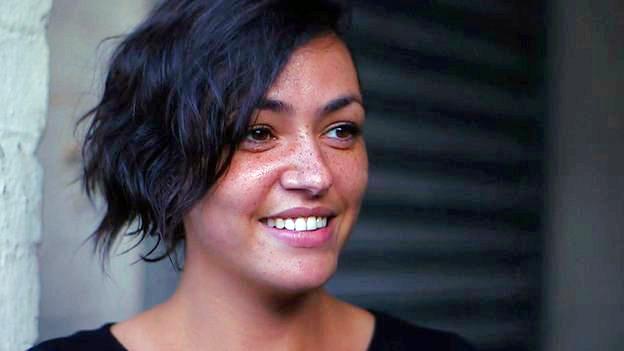Birmingham City Council's children's services to be run by a trust
- Published
What went wrong in Birmingham children's services?
Birmingham's children's services will be run by a trust after years of failings that saw the department named "a national disgrace" by inspectors.
Ofsted has rated the service "inadequate" since 2009 and improvement has "not gone far enough, fast enough", the Department for Education has said.
Child deaths include Khyra Ishaq, seven, who starved and Keanu Williams, two, who was murdered by his mother.
The council said the voluntary decision will be finalised by the cabinet.
Birmingham City Council: What will happen to children's services?

Bosses at Birmingham City Council want to keep control of some aspects of children's services
The government appointed Lord Warner as an external commissioner to oversee the running of children's services in the city in March 2014.
Since then, he found there had been "significant improvements" but more was needed.
On Tuesday he said he felt moving to a trust was a "rushed decision" as it had no proven track record of providing change.
Andrew Christie from Westminster, Hammersmith and Fulham and Kensington and Chelsea councils, replaced Lord Warner in December 2015 to continue a three-year review of the department.
Mr Christie said: "The city council has decided that one of the things it now needs to do is to strengthen governance with a children's services trust.
"Done well, my judgment is that this will provide a more solid platform for the next stage of Birmingham's improvement programme."

Analysis
by Phil Mackie, BBC News correspondent
Insiders have been telling me that while improvements have been made to Birmingham children's services, the department still struggles to retain staff and therefore relies heavily on agency workers.
They also say that social workers can still be dealing with between 20 and 30 individual cases, even though a maximum of 15 is recommended.
Critics of the council have been calling for a change along these lines for years, but it's unlikely that the new voluntary trust, however it is set up, will be a panacea for the city's problems.
Birmingham's central belt is one of the most deprived areas in the country and the city's population is rapidly growing.
Whoever takes charge will have to address recruitment and morale as a matter of urgency.

Professor Ray Jones, who has advised councils on social services, said if there was "a lot of work to do and not enough people to do the work, that'll be the same in the trust as anywhere else".
An NSPCC spokesman said: "Concerted efforts must now be made to improve staff retention rates and - most importantly of all - ensure the most vulnerable members of society are protected."
Brigid Jones, cabinet member for Children's Services at the city council, said it was "a voluntary move", adding: "We will retain control of design, delivery, and the trust itself".
"Our caseloads are the lowest that they've been: they're 15 now on average, they were around 30 on average when I started," said Ms Jones.
"We've got our staff turnover down from around a third to around a quarter. And the number of agency social workers has come down significantly as well.
"What we need to do now is find a way to keep that improvement going. And we think that by going into some sort of trust arrangement, we can do that in the best way."
Alison Holt, BBC social affairs correspondent, said the announcement was brought forward because of a Channel 4 Dispatches programme to be broadcast this week.
She said: "Similar children's trusts have been established to run services in places where there have been problems such as Doncaster and Slough.
"They often rely on groups of experts, charities and high-performing local authorities to provide support."
Perry Barr MP, Khalid Mahmood, said he welcomed the news that a trust would make key decisions, but said there were still "huge issues" around how it would be staffed, managed and resourced.

Undercover TV investigation
A spokeswoman from Dispatches said its undercover investigation revealed a "troubling picture of chaos, low staff morale, confused decision-making and overstretched colleagues struggling to cope"
Key findings included concern over cases "where children could be at risk of sexual or physical abuse are not being handled properly" and social workers "not receiving appropriate supervision" and wanting to quit
One junior social worker resigned after "being forced to 'beg' for help from managers"
There was confusion over how cases should be categorised. In one case, a three-year-old girl reportedly abused by a relative was not considered to "require urgent action" because the family member lived outside the home

A blogger who runs the Facebook page Social Work Tutor, external said he had been contacted by a social worker who was filmed for Dispatches.
He said: "It talks about exposing a service which is struggling, where decision-making is clouded and the protection of children isn't good."
He added: "Somebody, somewhere has had the responsibility to turn this around. Three years is a long time when the cost of failure isn't monetary, it isn't logistical, it is children dying and children seriously injured.
"Doncaster was the first authority in England to go into a trust and has seen a fall in referrals. A trust will bring an added level of accountability.
"The evidence we've seen from Doncaster is that this can only be a good thing for staff, children and social workers."
- Published24 May 2016

- Published24 May 2016

- Published13 July 2015
